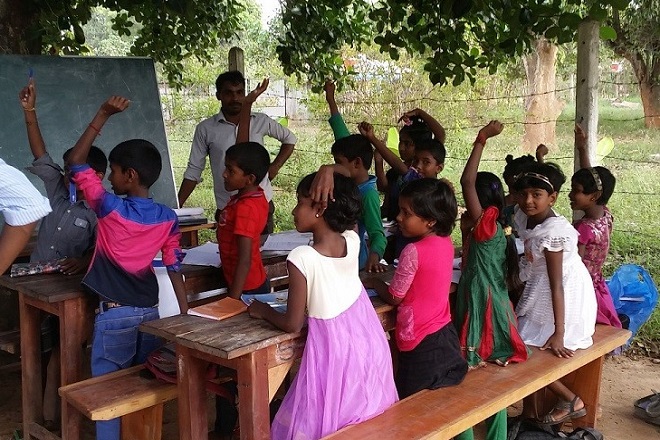Vinuja Singharachchige
“There is definitely an epidemic of overprotective parenting”- Jordan Peterson
I find our country to suffer from excessive risk aversion. Why do we not see the nobility in becoming extremely successful by taking risks and pushing the boundaries? Why are we afraid to question things out of fear of coming across as disrespectful? As a society, we have never learned to balance the forces of chaos and order which are the two fundamental axioms of human experience. We run from the boundary of chaos and hide in the comfort of order but to what cost? I believe our attitudes towards parenting have played a big role although it may not be the sole culprit.
The ethos of overprotection is not a problem unique to the micro unit of a family but runs through at all levels. It’s reflected in how most Sri Lankans view their relationship with regards to government. It is an overly paternalistic relationship where people expect the government to be responsible for fixing every problem despite being very aware of its historic inability to generate meaningful results. There is a lack of individual responsibility and self-ownership and that is perhaps because we do not view the individual the same way other societies do.
When it comes to parenting, we have fewer children and hence dedicate far more resources than we used to be able to. Parents have a vested interest in seeing their child go onto hold a respectable position in society. They will dedicate their entire lives around the family unit. This of course makes it harder to let go as you have then used your child’s life as a proxy for meaning in yours making it incredibly difficult to let go of the share of responsibilities which should slowly follow a process of devolution as the child ages. Parents are rampant in their micromanagement of their children well into their adult lives leaving thin boundaries which are necessary for any healthy relationship.
You have two options with regards
to your children. You can either let them go out into the world with an
appropriate level of independence and face the harshness of reality or you can
keep them safe. The problem is that the world is not a rosy place so your child
gets hurt either way. One leaves children woefully ill-equipped to face the
reality while the other option strengthens their ability to face challenges.
The theme is true in the Buddha’s story growing up.
buy flagyl online buy flagyl online no prescription
What really pushed Siddhartha
Gautama on the tough road to enlightenment was the realization of the lie that
was his life living in the cocoon of luxury. His encounter with a diseased man,
a decaying corpse and an ascetic prompted him on a journey of existential
discovery upon the realization that the bubble had been a delusion.
Responsibility is what gives life its meaning. We need to lift a manageable load to give directionality to our lives. If we do not raise our children with the appreciation for responsibility, that leaves them in a dangerous state of cluelessness with regards to how to go about their lives when they leave the nest. Of course, there is the option of never leaving the nest but what good does that do? If children do not grow up, they will forever be Peter Pans in Neverland living as one would if they were blessed with eternal youth. But life is finite, and adults cannot afford to behave like toddlers engaging in whimsical pleasures. I suspect that inability to handle responsibility is why many homes are troubled with domestic violence as men, who do not have structure and clear purpose in their lives, take to drinking and wreak chaos in their own world. So overwhelming is the world around them, that hedonism is their first line of defense.
To create responsible and competent adults who can work towards the betterment of society, we need to encourage our children to face the risks posed by the outside world and become masters of their environment. It is then that we can truly go on to grow as a society to great heights. It is not that parental love is inherently bad but that too much of anything, even if benevolence is the root motivator, can lead to unintended consequences. Parenting is an experience that shapes the trajectory of our lives and perhaps it is time we critically thought about how this critical component is best delivered.

